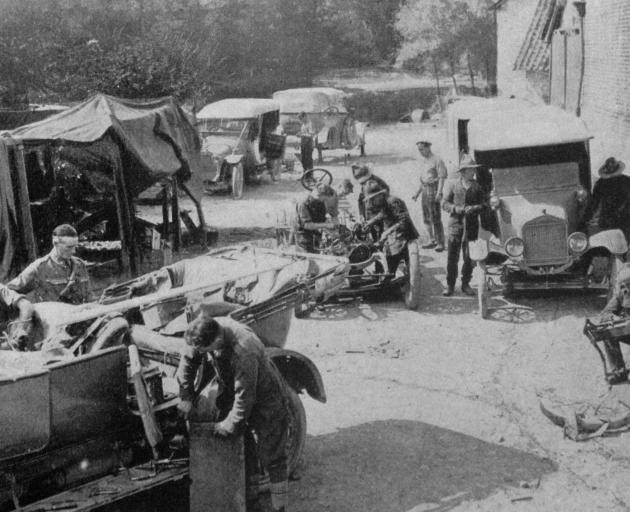
The Defence Department, as a matter of fact, had been proceeding with the demobilisation, quietly and without advertisement. The camps had been divided into sections, in order that the men might be classed medically.
The men who had not suffered from the disease, and who were clear of contact with it, were being got away as fast as was wise. The convalescent men were kept apart, and they were allowed to leave after they were pronounced by the medical officers to be clear.
The defence authorities realised that where men were gathered together in large numbers there was increased danger of infection. For that reason every possible step had been taken to scatter the soldiers.
Epidemic escalates
Taking into consideration the information obtained from all sources yesterday, there must have been an increase in the number of cases reported in Dunedin.
The admissions at the Hospital showed an increase compared with the previous day, and at the bureau the heaviest day since it was established was experienced; that is, as regards calls, personal attendances, and visits paid by students and nurses.
The case was reported to us yesterday of a voluntary aid worker, a woman, who worked continuously for 24 hours and then broke down.
It is suggested to persons who exhibit a white flag as an indication of the occurrence of sickness in their premises and of the need of medical help that aid would reach them more readily if they were to supplement the use of the signal by calling up the Central Inquiry Bureau on the telephone.
Of 35 reported cases of pneumonic influenza five are in the Waitaki Hospital District, 17 are in the Otago District, and 13 in the Southland District.
Post Office services hit
The absentees through sickness in the Telegraph Office and Telephone Exchange number 43. The work is being overtaken by accepting only urgent messages. At the Dunedin Post Office 26 of the officials are absent in consequence of having taken the complaint, and there is a probability that two more will be added to the number to-day.
Country offices seem to be suffering worse than the city office, and in some cases strenuous efforts have had to be made to carry on.
At Alexandra the whole staff became laid up, and a cadet had to be sent from Clyde to carry on operations. At Tapanui the postmaster became seriously ill, and had to be taken to the hospital, and two cadets are keeping things going.
In connection with the tramways, 61 men are off duty through being laid up with influenza. One of the conductors, George M'Pherson, died yesterday morning.
The guests and staffs of all the principal hotels in the city have been more or less seriously affected by the malady. In the Grand Hotel, for example, 30 guests and some 15 members of the staff contracted the trouble, with one fatal result.
- ODT, 21.11.1918.












